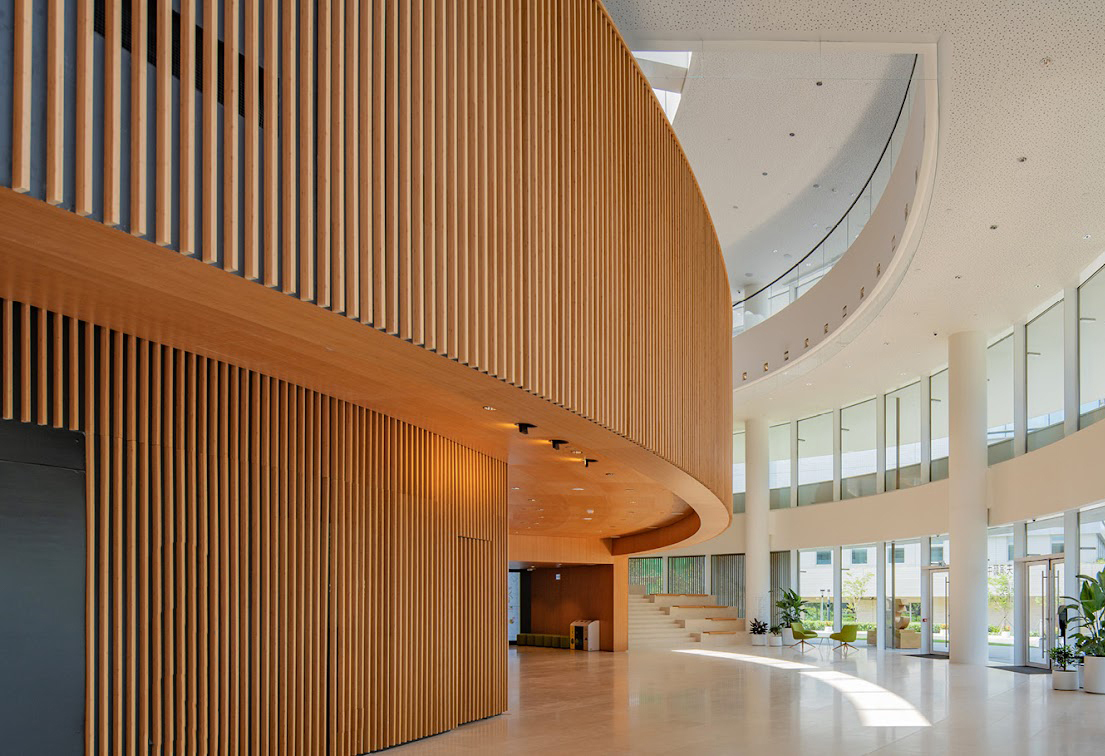Explore our comprehensive database of sustainable materials. Our mission is to link architects, designers and manufacturers in the transition towards sustainable construction materials.
Sign Up / Login
Our selector tool is designed to help architects, designers, and specifiers find the perfect natural materials for their projects.
Manufacturers of building materials can showcase their sustainable products on Changing Materials to a global audience of architects, designers, and specifiers.
These benefits emphasise the importance of reducing the carbon footprint in construction through the use of sustainable materials, while also considering the long-term health and environmental impacts of avoiding plastics.
Architects can explore a comprehensive database of sustainable, plastic-free/low, and plastic alternative products, including natural materials like hemp, miscanthus, mycelium, and bamboo. This helps to integrate eco-friendly solutions into your designs, aligning with green building standards and certifications.
The tailored selector tool developed with the University of Liverpool allows architects to easily find suitable materials based on category, type, development stage, and availability. This simplifies the selection process and ensures you choose the most appropriate materials for your projects.
By using Changing Materials, architects can stay abreast of new and exciting sustainable materials and innovations, enabling them to be pioneers in sustainable construction and design.
The platform’s categorisation of materials into different development stages helps architects plan projects that are both innovative and feasible, whether you need currently available materials or are willing to invest in emerging technologies.
Architects can leverage the comprehensive database to ensure that their projects meet or exceed sustainability standards, which is increasingly important for regulatory compliance and market demand.
The platform provides opportunities for architects to network and collaborate with manufacturers, researchers, and other professionals in the sustainability sector, fostering knowledge sharing and joint innovation.
Architects are able to provide educational resources and case studies on the platform, which provide insights and inspiration on how to effectively use sustainable materials in various projects.
By selecting materials from the Changing Materials database, architects can opt for alternatives to plastic, which typically has a high embedded carbon footprint due to its fossil fuel-based production. This helps significantly lower the overall carbon emissions of their projects.
Avoiding plastics can reduce the potential health risks associated with the leaching of chemicals over time, creating safer and healthier indoor environments for occupants.
The platform provides access to materials with lower carbon footprints, which can enhance the sustainability credentials of buildings through more favourable LCAs, demonstrating a commitment to carbon reduction throughout the material lifecycle.
Utilising the platform to find sustainable alternatives supports broader carbon reduction targets set by clients, governments, and international agreements, positioning architects as leaders in climate-conscious design.
Architects can use the low-carbon materials sourced from the platform to improve sustainability reporting and certification scores, showcasing tangible reductions in carbon emissions to stakeholders and regulatory bodies.
As regulations around carbon emissions become stricter, sourcing low-carbon materials ensures that projects are compliant with current and future carbon reduction mandates, avoiding potential legal and financial repercussions.
By providing these clear benefits, Changing Materials supports both architects and manufacturers in driving the transition to sustainable construction practices, fostering innovation, and contributing to a greener future.
Joining Changing Materials allows manufacturers to showcase your sustainable construction products to a global audience of architects, designers, and specifiers, significantly increasing your product visibility.
Manufacturers can connect directly with professionals in the construction industry who are actively seeking sustainable materials, ensuring your products reach the right audience.
Highlighting your commitment to sustainability and eco-friendly practices helps manufacturers build a positive brand image and align with the growing demand for green construction solutions.
The platform’s focus on different stages of product development means manufacturers in Stages 1 and 2 can gain visibility and attract potential investors, banks, and funders interested in supporting sustainable innovations.
By featuring your products on a dedicated sustainability platform, manufacturers can differentiate themselves from competitors and position your offerings as leading solutions in the move towards reducing plastic reliance in construction.
By showcasing your products to a focused audience of industry professionals, manufacturers can receive valuable feedback that can inform product improvements and new product development.
Being part of a dedicated sustainability platform enhances the manufacturer's reputation within the industry as a leader in sustainable practices, which can lead to increased trust and loyalty from clients and partners.
Manufacturers can stay informed about the latest trends, research, and advancements in sustainable construction materials, allowing them to adapt and innovate in response to market needs and technological progress.

Are you a manufacturer of sustainable construction materials? Join Changing Streams and showcase your products to a global audience of architects, designers, and specifiers.
Find out more